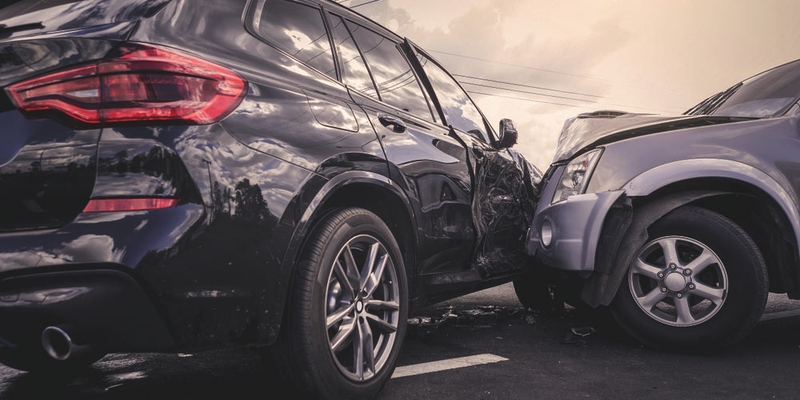
If you are not redirected within 30 seconds, please click here to continue.
Samedi: 10h – 16h HAE

If you are not redirected within 30 seconds, please click here to continue.
If you are not redirected within 30 seconds, please click here to continue.
How Will a Claim Affect Your Auto Insurance Rate?

Your driving record and insurance history factor heavily into the premium you pay. A good driving record often equals better auto insurance rates. But what happens to your premium if you must submit an insurance claim?
Most drivers assume that their rate will rise, and while this is true in certain circumstances, it isn’t always the case. In fact, there are a variety of times when your premium will generally go unscathed if you need to submit an insurance claim.
Buyer beware: collision and comprehensive coverage are optional. If you choose not to include them in your policy, damages that otherwise might be covered won’t be. Collision coverage will help pay for repairs if your car is damaged in a collision, while comprehensive coverage provides protection for claims like fire and theft — both have a deductible.
Accidentally speaking...
Whether you have a claims-free insurance history or a mark on your record, the reality is that collisions can happen to anyone. And, if you do not have first-hand (or recent) knowledge of what happens to your premium when submitting an insurance claim, you might fear the worst.
What follows, then, is a primer on how insurance claims may, or may not, affect your insurance rate.
First up is fault determination. If you’re in a collision, you’ll either be found fully (100%) at fault for causing it, partially at fault or fully not at fault. In Ontario, the degree of fault is determined by the Fault Determination Rules, which all insurance providers must follow. These rules are in place to ensure all drivers are treated consistently and fairly.
What happens if you’re found to be not at fault for the collision?
Let’s start with the best possible scenario (if such a thing exists when you’re in a collision). If you’re involved in a collision, and you’re wholly not responsible for causing it (e.g., another vehicle rear-ends you), the resulting insurance claim for the damages caused will not increase your premium.
In this case, you were simply at the wrong place at the wrong time, and your premium won’t take a hit when it’s time to renew your auto insurance policy or shop around for a new one.
Don't waste time calling around for auto insurance
Use RATESDOTCA to shop around, and compare multiple quotes at the same time.
What if you are found partially or wholly at fault for a collision?
When you’re found to be at fault for a collision, even partially, your premium will likely increase upon renewal. Depending on your insurance provider, you could see a higher premium for up to six years (the amount of time the collision stays on your driving record). When this happens, it’s time to put your rate to the test by comparing auto insurance quotes online, as some insurance providers are more forgiving than others.
Speaking of forgiveness, these two notable exceptions for an at-fault collision won’t increase your premium:
- If you’re less than 25% responsible for the collision. When your role in the collision is minimal, insurance companies in Ontario are not allowed to use it against you to determine your rate.
- If your policy includes an accident forgiveness endorsement. If you have accident forgiveness coverage, your premium will not increase after your first at-fault collision. Not everyone has this endorsement, though. Accident forgiveness typically costs extra, and some insurance companies only offer it to drivers who have been collision-free for at least six years.
It’s crucial to remember, however, that an accident forgiveness endorsement is company-specific, meaning that although your current insurance provider may “forgive” your first at-fault collision in terms of the premium it charges, the incident itself is not forgotten. The collision will still be listed on your driving record and insurance history and will follow you if you decide to switch insurance providers, meaning your rate is likely to rise with the new company. As well, if you get into a second at-fault collision, accident forgiveness will no longer protect you.
Insurance claims for fire, theft, vandalism, or windshield replacement
Insurance claims for non-accident-related damages, like fire, theft, or vandalism fall under your comprehensive coverage. These types of insurance claims have nothing to do with your driving abilities and are usually just an unlucky break. As a result, they typically will not impact your auto insurance premium.
The only caveat: if you have windshield replacement coverage. Your first claim for a cracked windshield will usually leave your premium intact; however, if you have repeated claims, your insurance provider may increase your deductible or exclude this coverage altogether. Word to the wise, if you need to submit a windshield replacement claim, you’ll want to avoid dirt or gravel roads for a bit.
Insurance claims don’t always increase your rate
Having to submit an insurance claim isn’t the end of the world. After all, it’s there to help offset the financial costs when things go wrong. But if you’re unhappy with how your rate changed after filing a claim, you have other options. Compare quotes to see if switching insurance companies will save you money.
Get money-saving tips in your inbox.
Stay on top of personal finance tips from our money experts!









